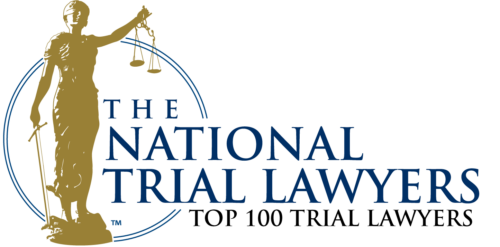Scald injuries are burns caused by hot liquids or steam. Exposure to scalding liquids can result in severe, third-degree burns and even death. Children and the elderly are at the greatest risk of scalds and serious burns because their skin is thinner than an average adult’s and can burn more deeply and quickly when exposed to hot liquids. Scalds are one of the leading causes of burn injuries, second only to direct contact with an open flame. Each year, roughly 100,000 people end up in hospital emergency rooms from scald injuries, with about 20,000 being children under the age of five.
What Does it Take to Cause a Burn Injury?
Burn experts say that water or other liquids at a temperature of 140 degrees Fahrenheit can cause third degree burns in approximately five seconds, and at a temperature of 160 degrees, liquids can cause third degree burns almost instantaneously. The most common source of scald injuries is hot showers and baths. Many homeowners, landlords, property managers, and hotel owners set water heaters at temperatures greater than 150 degrees, putting tenants and guests at a risk of serious scald burns. Children and toddlers may sustain serious burn injuries if they slip into a scalding bath or unknowingly turn on the hot water. The Consumer Product Safety Commission (CPSC) issued a safety alert advising homeowners and landlords to set water heaters to no higher than 120 degrees to prevent accidental scald injuries. Temperature control valves and other anti-scald devices can prevent scald injuries by limiting the amount of hot water that can flow through a faucet or shower head. However, these control valves may fail or be manufactured defectively, exposing people to scalding water.
Hot coffee, tea, hot chocolate, or other hot beverages can also cause second and third-degree burns. Even though the CPSC recommends shower and bath water to be no hotter than 120 degrees Fahrenheit, many restaurants, diners, and coffee shops serve these beverages at temperatures up to 180 degrees. Temperatures this hot can cause disfiguring burns to unsuspecting consumers instantly.
Failing or defective products, manufacturing errors, and flawed product design may also result in catastrophic scald injuries. Bursting pipes and valves on water heaters, radiators, and boilers can expose individuals to scalding steam, which can cause severe burns, blistering, and airway damage if inhaled. Hot grease from deep fryers, hot wax at salons and spas, steam from humidifiers, steam from pressure cookers, and oil from potpourri oil heaters can all cause extensive burns if used incorrectly, or if they have a defective or failing part.
Scald burns can be just as severe as burns from flames or chemicals, and can be life-threatening. The longer someone’s exposure to the scalding liquid or steam is, the deeper and more catastrophic the burn will be. Scalding can cause permanent scarring and disfigurement, long-term circulation problems, edema and swelling, and death. Many scald victims will require extensive medical treatment including skin grafts, plastic surgeries, and treatment for secondary infections.
Most scalding injuries are preventable. If you or someone you love has been catastrophically injured, permanently disfigured, or wrongfully killed due to scalding injuries, contact one of the experienced scald accident attorneys of The Reiff Law Firm. Our burn accident attorneys understand the devastation and pain a scald injury can cause to not only the victim, but to the victim’s entire family. Severe scald burn may cause permanent disability and can prevent someone from being able to work or earn an income.
Our Experienced Burn Injury Attorneys can Help in Delaware County
For over three decades, our scalding accident and defective product attorneys have successfully fought for those catastrophically injured by someone else’s negligence or irresponsibility. Consumer safety is our top priority, and our track record of winning hundreds of millions in compensation for innocent victims, proves our commitment to your protection. Call today for a free consultation – (215) 709-6940.















